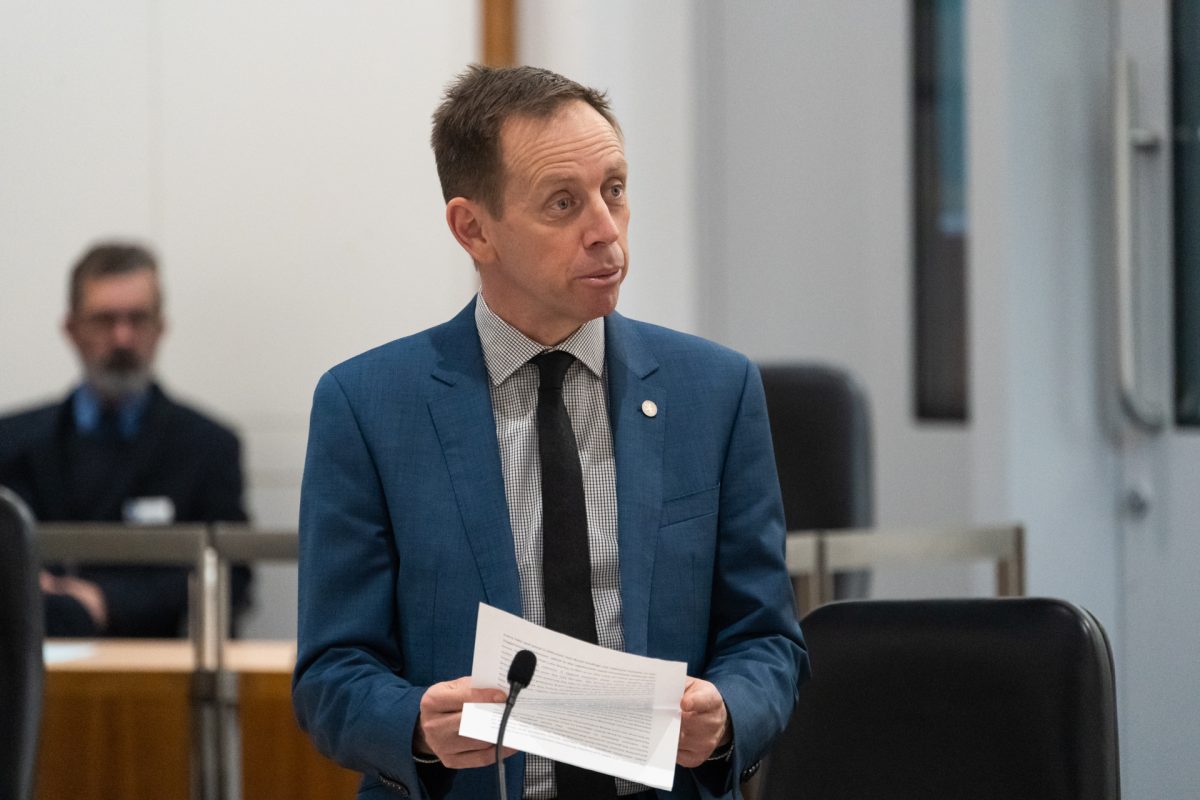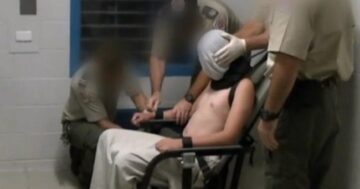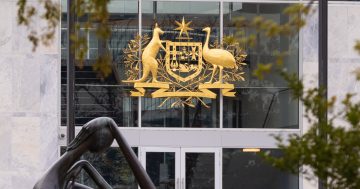
Attorney-General Shane Rattenbury. Raising the age of criminal responsibility is an ACT Government commitment under the Parliamentary and Governing Agreement. Photo: Region.
The ACT has taken the next step in becoming the first Australian jurisdiction to legislate raising the minimum age of criminal responsibility to 14 years.
The Justice (Age of Criminal Responsibility) Legislation Amendment Bill 2023 was introduced to the Legislative Assembly on Tuesday (9 May) to raise the age to 12 years initially and 14 years by 1 July 2025.
Attorney-General Shane Rattenbury said the staggered approach would allow the government to implement reforms for children aged 10 to 11 years and to allow an alternative service system to be rolled out for all young people before the age was raised further.
“We know that children and young people aged between 10 and 13 years who engage in harmful, risky or violent behaviour often do so because of trauma, abuse, neglect, homelessness or unmet disability or mental health needs,” he said.
“The amendments in this Bill will help address these risk factors and support young people rather than criminalise them.”
Four serious offences will maintain a minimum age of criminal responsibility of 12 years: murder, intentionally inflicting grievous bodily harm, sexual assault in the first degree and an act of indecency in the first degree.
“The exceptions apply only in situations regarding a handful of particularly serious offences committed with the intention of causing serious bodily harm,” Mr Rattenbury said.
An alternative system will be established to support these young people, including a Therapeutic Support Panel.
Mr Rattenbury explained this would provide an independent decision-making forum responding to the therapeutic needs of children who “display harmful behaviour”.
“The panel will bring together people in a restorative way to agree to a path forward with the child or young person and, where necessary, provide a mechanism to hold people to account,” he said.
The Bill also introduces a new community-based intensive therapeutic sentence, known as a Therapeutic Correction Order, for children aged 14 to 18 years.
“The Order will provide wraparound services for a young offender convicted of a criminal offence to ensure they receive assistance to address their needs and reduce the likelihood of reoffending,” Mr Rattenbury said.
“[It’s] a sentencing alternative for those young offenders for whom a good behaviour order does not have a strong enough therapeutic benefit.”
It would also be available to children aged 12 to 13 years who have been charged with one of the more serious offences.
Those subject to such an order could still be confined “as a last resort” and as ordered by the Children’s Court if they pose a risk to themselves or the community.
Under the amendments, police would still have the power to arrest a child aged 10 to 13 years.
Several organisations have been campaigning for the age of criminal responsibility to be lifted, stating this kind of reform is long overdue.
However, some are concerned it still doesn’t go far enough to keep children out of prison.
ACT Law Society president Farzana Choudhury said the changes wouldn’t bring the ACT in line with United Nations standards.
“We are concerned that exceptions have been included in the proposed legislation,” she said.
“The Society has consistently advocated for the minimum age of criminal responsibility to be raised to 14 without exception.
“We believe that carving out exceptions undermines the purpose and rationale of raising the age.”
Ms Choudhury argued medical evidence showed children do not have the cognitive capacity to be held criminally responsible, and therefore exceptions to the age shouldn’t be made.
“We should be supporting our children in their families, communities, and cultures, not forcing them into the criminal justice system that will harm them for life,” she said.
The Aboriginal Legal Service (NSW/ACT) criticised the staggered approach, stating the welfare of 12 and 13-year-old children couldn’t wait until 2025.
CEO Karly Warner said this approach failed some of the ACT’s most marginalised children.
“Let’s be clear: by failing to raise the age to 14 urgently and without exception, the ACT Government is failing Aboriginal children,” she said.
“Aboriginal kids are over-represented at every stage of the system, from police to court to prison. The ACT imprisons Aboriginal children at 12 times the rate of non-Indigenous children.
“It’s Aboriginal kids and families who will be most harmed by the government’s refusal to fully accept the evidence about what works.”
Others have raised their concerns that the support mechanisms aren’t in place to support young people who have come to the attention of police.
Australian Federal Police Association (AFPA) president Alex Caruana welcomed the staggered approach, which he felt would provide valuable data about children offending in the ACT.
However, he felt a lot of work still needed to be done.
“There are currently limited alternate diversionary options for young offenders in the ACT. More resources and funding would be required from the ACT Government to support police working with this new legislation,” Mr Caruana said.
He also voiced his concerns that police officers would become “minders” for children due to a lack of alternate options and programs in the ACT for these young people.
“While police won’t be able to charge a child for family violence offences, there may still be a safety requirement for that child to be removed from the house. Would this action be legal, where does that child go, and for how long?” Mr Caruana asked.
“ACT Policing is already under-resourced; if support services weren’t in place, it would again fall to ACT Policing members to hold that child in protective custody.
“This could take general duties police members away from their regular duties for hours on end while they have to mind a child at a police station, with that child unable to be charged with a criminal offence.”
Raising the age of criminal responsibility is an ACT Government commitment under the Parliamentary and Governing Agreement for the current term of the Assembly.




















